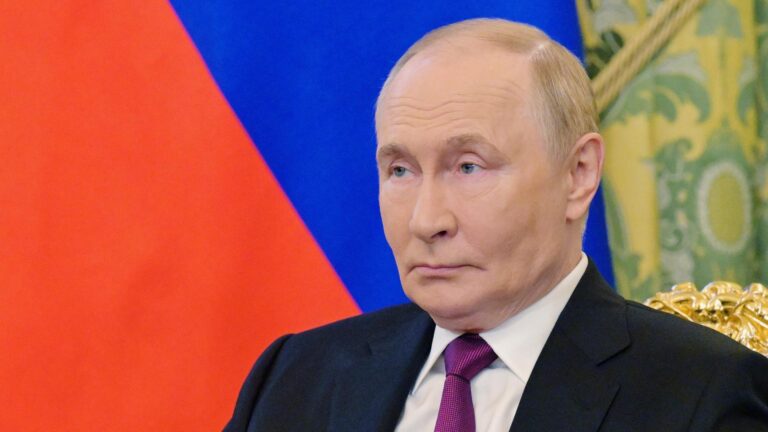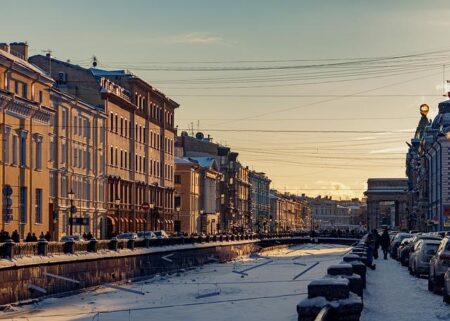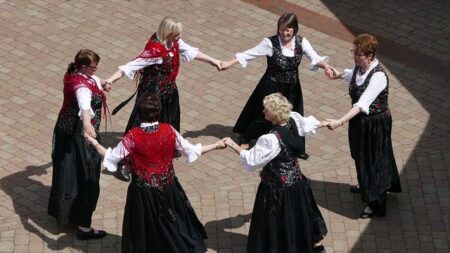Russian President Vladimir Putin has sharply criticized Western sanctions against Russia as “discriminatory” in a pointed statement ahead of his upcoming visit to China. The sanctions, which have been intensified in response to Moscow’s actions in Ukraine, remain a central point of contention between Russia and Western countries. Putin’s remarks come as both nations seek to reinforce their strategic partnership amid escalating geopolitical tensions, highlighting the broader context of shifting alliances in global affairs.
Putin Condemns Sanctions as Unfair Tactic Targeting Russia’s Economy
Russian President Vladimir Putin has sharply criticized the economic sanctions imposed by Western countries, describing them as a discriminatory and coercive measure designed to destabilize Russia’s financial stability. Speaking ahead of his official visit to China, Putin argued that these sanctions are not merely punitive but represent an unfair attempt to isolate the country from the global economy. He emphasized that such restrictions have only strengthened Russia’s resolve to develop alternative partnerships and diversify its economic alliances, particularly focusing on ties with Eastern nations.
Highlighting the wide-ranging effects of these sanctions, the Kremlin leader outlined several key areas impacted by the restrictions:
- Energy exports: Attempts to limit Russia’s oil and gas sales have prompted Moscow to seek new markets.
- Financial transactions: Restrictions on banking and investment flow have accelerated Russia’s shift to non-Western payment systems.
- Technology access: Limited access to advanced Western technology has spurred domestic innovation and import substitution initiatives.
Below is a summary of the economic sectors most affected by international sanctions:
| Sector | Impact | Government Response |
|---|---|---|
| Energy | Export limitations, price caps | Focus on Asia-Pacific markets |
| Finance | Restricted access to SWIFT, asset freezes | Adoption of alternative payment networks |
| Technology | Import bans on critical components | Investment in domestic R&D |
Analysis of the Impact of Western Sanctions on Russia-China Strategic Relations
Western sanctions, imposed in response to Russia’s actions on the global stage, have inadvertently catalyzed a deepening bilateral strategic partnership between Moscow and Beijing. Amid what President Putin termed “discriminatory” restrictions, Russia has pivoted towards China not only to circumvent economic isolation but also to secure political backing against Western pressures. This realignment is marked by increased energy cooperation, defense collaboration, and technology sharing that signal a deliberate move toward reducing dependence on Western markets. Key sectors such as oil exports, natural gas supply, and military technology have witnessed rapid expansion in cooperation, underscoring a mutual interest in counterbalancing Western influence.
The evolving Russia-China nexus can be illustrated by the following cooperation highlights:
- Energy Trade: Russia’s gas exports to China surged by over 30% in the past year.
- Military Exercises: Joint drills signaling enhanced strategic coordination.
- Financial Systems: Development of alternatives to SWIFT for cross-border payments.
- High-Tech Collaboration: Shared investments in telecommunications and artificial intelligence.
| Sector | 2022 Growth | 2023 Projection | ||||||||
|---|---|---|---|---|---|---|---|---|---|---|
| Energy Supplies | +32% | +40% | ||||||||
| Military Cooperation | +25% | Experts Urge Enhanced Diplomatic Engagement to Overcome Sanction-Driven Tensions
Amid mounting geopolitical strains, specialists emphasize the urgent need for a recalibrated dialogue framework between affected nations. The prevailing sanctions have not only intensified economic hardships but have also deepened political rifts, making constructive communication all the more critical. Analysts argue that without a robust diplomatic channel, the risk of escalating misunderstandings could undermine global stability. Enhanced diplomatic engagement is proposed as the key to navigating these turbulent waters, fostering mutual respect and laying groundwork for potential compromises. Experts have outlined several strategic priorities that could guide future diplomatic efforts:
Insights and ConclusionsAs President Vladimir Putin prepares for his upcoming visit to China, his sharp criticism of Western sanctions underscores the deepening rift between Russia and the West amid ongoing geopolitical tensions. The remarks highlight Moscow’s resolve to counter what it views as unjust economic pressures, while seeking to strengthen strategic ties with Beijing. As the situation evolves, the international community will be closely watching how these dynamics influence global diplomatic and economic landscapes. |




